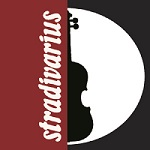This musical proposition combines two compositions created about 30 years apart, in two different countries and moments of life, but that emerge from the same feelings well portrayed in the poetic and autobiographic citations above. Formally, they are very different music pieces, but they both describe the emotional introspection of a man that narrates through music his own condition as an exile. The Concerto per chitarra e orchestra, Op. 99 is brought to life at the end of 1938: Mario Castelnuovo-Tedesco is in Florence and the latest Christmas vacation in Italy is filled with concern for him, the racial laws that came into effect make his and his family’s life intolerable. Almost thirty years later, Mario Castelnuovo-Tedesco, two years before his death, comes back to this theme so dear to him and relives it again intensely, with decidedly more bitter and disenchanted undertones, through an alterego that experienced, 900 years before him, a similar fate (as to almost underline the historical cycles of humanity and its mistakes). Moses Ibn Ezra (1055/60-1138?) was a Spanish poet, of Jewish religion, who was forced to flee from his Granada possibly following family conflicts, but maybe after the Almoravidi Arabs conquered the city and enforced a cultural regime less tolerant towards the jewish minorities compared to the previous Arab domains. The Diwan (or Divan) is a collection of short poems, often sang, typical of the jewish culture, but also of the Arab one and, in particular, the one from el Andalus, the Spain under Arab rule.




 My Wish List
My Wish List



